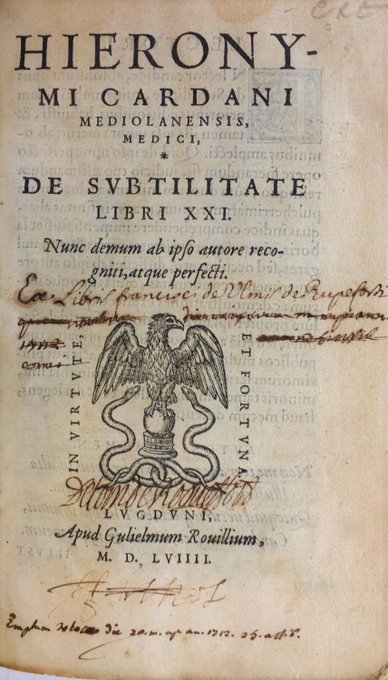THE USUAL SUSPECTS
No. 3 DETECTIVE CAMERAS
In the Eli Nesmith box, there was no camera or projector. Followers to Stephen Herbert’s ‘The Optilogue’ web page/blog have suggested detective cameras from the 19th century.
There are several culprits that may have done the deed. https://t.co/yyg00AtiAf
Brewster’s ‘Polyangular Kaleidoscope’ angled view from ‘A Treatise on The Kaleidoscope’, Printed for Archibald Constable & Co. Edinburgh, 1819, appendix, plate III, fig. 18. https://t.co/dqLZGE4bwu
Therefore, Müller stated that people who believe they are seeing spectres, ghosts, phantoms or other visions, might be really experiencing ‘optical sensations’ and truly believe these visions to be of external origin, even if there is no external stimulus taking place. https://t.co/1pwxsyFP3S
1845
JOHANN PETER MÜLLER (1801-1858)
This physicist and scientist begins to use the ‘Fantoscope’ and its use of disks, to study wave motion in light.
Synthetic red lead (also called 'lead red') was made in China as early as the Han era (206 BC to 220 AD), and no evidence exists that the natural version of the pigment was ever utilised there. -30- https://t.co/MtersKIsHE
This print illustrates a private ‘Magic Lantern’ performance in an upper-class drawing-room, or salon operated by a projectionist and an organ-grinder. Called ‘The Magic Lantern’, from 1822. The family is gathered in the shadows. https://t.co/9Nwt4JaHcX
‘Le Singe qui Montre La Lanterne Magique’ is a comical steel engraving by Foulquier, after Victor Bachereau from 1865.
It’s one of the many book illustrations published on the well-known fable by Jean-Pierre Claris de Florian about a monkey displaying the ‘Magic Lantern’. https://t.co/SxBlZJdFsW
Cardano was a polymath, doctor & showman. He published in his book 'De Subtilitate Libri’, XXI, Cardani, Nurnberg, 1550.
Book IV, p107 describes his makings of a ‘Camera Obscura’ with a diverting spectacle and a graphic description of darkroom pictures and their appearances. https://t.co/q43NJOj0Eb
1811
OPTICS
DOMINIQUE-FRANÇOIS-JEAN ARAGO (1786-1853)
In 1811 Arago (l), in alliance w/ Augustin-Jean Fresnel (r), discovered that two beams of light polarized in vertical directions do not interfere, eventually resulting in the development of a transverse theory of light waves.
In 1884 Moëssard obtained a patent for a rotating-lens Panoramic camera. It covered a 170° field of view & was rotated by hand to expose the film.
Pictured is Moëssard’s 'Cylindrographe' illustration from ‘Le Cylindrographe Appareil Panoramique’, 1845, fig. 9, p23. https://t.co/syOmckkeLj
















